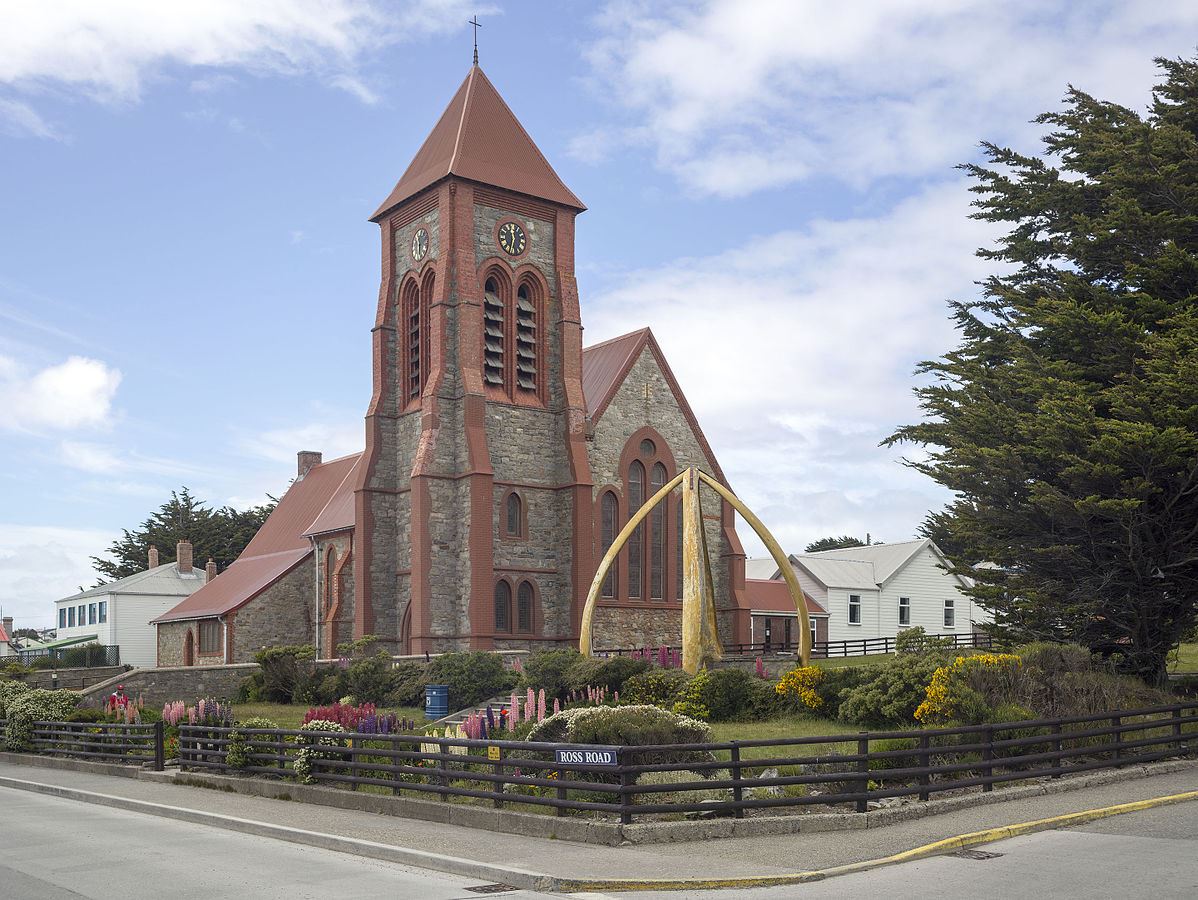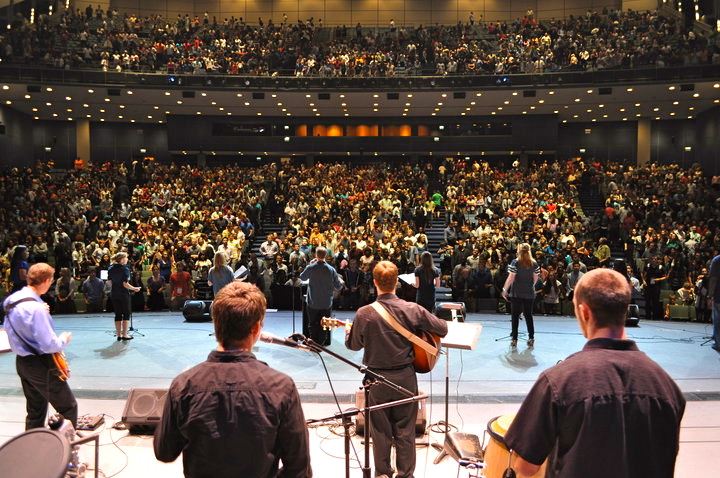A non-denominational church is a Christian church that does not affiliate with any established denominations or mainstream churches, such as Baptist, Catholic, Presbyterian, Lutheran, or Methodist. Church denominations are larger entities that possess a distinct identity, set of beliefs, and traditions.
Non-Denominational: Table of Contents
Meaning of Non-Denominational
Non-Denominational Churches of Christianity are congregations that are not self-affiliated with a traditional denomination and often separate themselves from the strict doctrine and customs of other Christian fellowships. Simply put, it means “not denominational" and is somehow different from the historical, well-known denominations of Christianity.
Commonly established by individual pastors or communities, these churches seek to practice a unique approach to traditional Christian worship. Although there is some general overlap between non-denominational churches and traditional Protestant congregations in terms of practices and foundational beliefs, sharing common sources of theology from the Bible and Protestant Reformation. Examples of Protestant denominations include Presbyterian, Episcopal, Lutheran, and Methodist.
Modern Growth of Non-Denominational Churches
The rise of non-denominational congregations has been remarkable in modern history. As reported by Universal Life Church, the amount of Americans classifying their religion as non-denominational increased from fewer than 200,000 in 1990 to greater than 8 million by 2008.
Non-denominational Christians usually have an inclination to regard the Bible itself as their authority rather than the customs of a distinct church. As contemporary fellowship has moved away from traditions, many people favored the Christian teachings of the Bible to the edicts or directives of authorities in large churches.
Unconventional churches allow more adaptability in a Christian's decision of worship or outlook. For instance, some historic denominations have become immersed in social matters that favor one political bias. So, non-denominational Christians left for churches that eluded politics while continuing to pay attention to social issues.
Examples of Non-Denominational Churches
As mentioned before, non-denominational churches are regularly established by individual pastors or communities seeking to practice a unique approach to Christian worship. Some others are established to perform a particular social benefit as an independent Christian organization. Below are some examples of independent churches and organizations with their purpose and principles:
- Churches of Christ: Distinct aspects of the Churches of Christ include getting their creeds of faith directly from the Bible, members are baptized as adults, and congregations are governed by a group of church elders. As common for other denominations, members also participate in a weekly Eucharist or communion service. One unique practice of this church is musical worship only done by acapella congregational singing.
- Independent Christian Churches: These churches are comparable to the Churches of Christ, besides that they utilize instruments in their musical worship services. Independent Christian Churches typically support the central teachings of the Restoration Movement and believe in complete obedience to Christ.
- Association for a More Just Society: This is a non-denominational Christian organization. Their mission is to invite and enable others to "do justice" in their society, following biblical teachings on the matter. Based in Honduras, this group focuses on fighting for peace, public security, and anti-corruption in their country.
- Hope Haven: A non-denominational Christian organization that strives to help others, Hope Haven was founded in Iowa in 1964. Its aim is to assist people with disabilities. They offer job training for people with hearing disabilities and provide disabled individuals with adult living services, employment assistance, mental health and recovery, and religious services.
Non-Denominational Churches are continually created as communities decide to establish their own churches, beliefs, and practices, however unique to their own within the Christian religion.
Pros & Cons of Non-Denominational Churches
Pros: Being independent congregations, Non-Denominational churches can customize their beliefs and practices to whatever doctrine and creeds they deem appropriate and righteous. This provides the opportunity to deviate from certain traditions of established denominations and appeal to modern (or more classical) interpretations of Christianity. Non-denominational churches could theoretically adapt more easily to an ever-changing world.
Cons: Diverging from larger existing denominations, Non-Denominational Churches can lack the resources or influence to gain a sustainable or growing fellowship. Also as the diversity of churches expands, confusion and misunderstandings between congregations could increase, having an expanding number of theological interpretations and views. Boston University theology scholar Stephen Prothero contends that nondenominationalism ignores the primary theological and spiritual issues that originally drove the division of Christianity into denominations behind a cover of "Christian unity."

Why Are There So Many Denominations in Christianity?
Don Darling answers one of the core questions behind the discussion about non-denominational churches: why do we have so many denominations in the first place?
(the following is a transcript of the video above, edited for readability)
I would say the reason there's so many denominations is because, frankly man is a fallen creature, and we live in a fallen world, and men are sinners, and the church, even though it is God's called out expression, it's made up of sinful creatures. And man, what does man like to do? We like to argue, and strive, and pride, and say, "I'm better than this person, and I'm better than that person."
There are doctrinal distinctions between many, and those are very important to them. Why are there so many? It's because we are fallen, and I can't say which one's the right one. What I would say though is, more important than denomination is, what does the bible say? And are you going, and are you involved with a Bible-believing and teaching church, a church that opens the word of God and teaches it and disciples, that adheres to the orthodox truth of the Christian faith?
There's different flavors, there's different leadership styles and structures that have developed, and one thinks they're better than the other, and we're all going to get to heaven and realize that, "Yeah, those other guys are in heaven too." We're going to have to share heaven with them, and that's quite okay.
But it's really a function of man being simple. God gave man the job of being the church, and man, typically, has to divide and be argumentative, and that's why we're here.
("Why Are There So Many Denominations in Christianity and Which Is the Right One?" first published on Christianity.com on July 22, 2013)

What Do Christians Across Denominations Need to Agree On?
A related question to denominationalism is what all Christians need to hold in common: the basics of Christianity. In this 2011 Breakpoint article based on the book Futurecast by George Barna, Chuck Colson explains why do-it-yourself Christianity is a problem:
We often hear that most people in the United States believe in God, and if you trust the opinion polls, they do.
However, when you dig down a little bit, you'll find this good news isn't so good after all. According to a new book by George Barna entitled Futurecast, America is filled with people who are do-it-yourselfers when it comes to religion — either making up God as they go along or dropping traditional beliefs and practices, like going to church. Barna tells USA Today, "People say: ‘I believe in God. I believe the Bible is a good book. And then I believe whatever I want.'"
Indeed, Barna says only 7 percent of those he surveyed say they believe in seven essential Christian doctrines, as listed in the National Association of Evangelicals' Statement of Faith.
Barna's Futurecast tracks changes from 1991 to 2011. It finds that those who say they haven't been to church in the past six months, except for special occasions like weddings or funerals, jumped from 24 percent two decades ago to 37 percent today. That's an increase of over 50 percent in the nation's "unchurched."
No wonder that Lifeway Research, in a new survey of 900 Protestant pastors, found that 62 percent say that the importance of being identified with a denomination will decline among believers over the next decade.
This buffet-style religion isn't confined to the church. USA Today quotes Nadine Epstein of the Jewish magazine Moment as saying that most Jewish people, when asked if there can be Judaism without God, say yes! Epstein adds, "You pick and choose the part of the religion that makes sense to you."
Okay, folks, we are experiencing a religious smorgasbord. Indeed, Barna says with just a hint of hyperbole that America may become a nation of "310 million people with 310 million religions."
Friends, if we believe in the Truth — not to mention in the future of the Church — this can't go on. We Christians must get back to biblical basics, to "the faith delivered once for all to the saints."
Don't get me wrong: I believe in religious freedom and diversity. But I'm talking to Christians today. While we need to exhibit grace to our brothers and sisters in the many debatable matters of doctrine, we've got to stand rock-solid and shoulder-to-shoulder on the essentials.
No Lone Ranger Christians! We learn and practice these in the company of other believers; that is, in the Church. We worship together, we minister together. That's why I wrote The Faith, a powerful manifesto of the great, central truths of Christianity that have sustained believers through the centuries. The Faith is a good place to go to refresh yourself — or learn for the first time — the doctrines on which every true Christian ought to agree.
But our primary goal in religion is not simply to get the doctrines right — as important as that is. It is to know the Lord Jesus Christ — but know Him as He is, not as we imagine Him to be. As my friend Stan Guthrie writes in his excellent book, All That Jesus Asks, "Jesus, unlike the religious action figures sold at Wal-Mart, is not infinitely bendable, able to assume whatever postmodern pose we give him."
Most BreakPoint listeners I'm sure get this right. But you've got people in your church, friends and neighbors who don't. So go to work on them; start catechizing them in the essentials of the faith.
Chuck Colson's daily BreakPoint commentary airs each weekday on more than one thousand outlets with an estimated listening audience of one million people. BreakPoint provides a Christian perspective on today's news and trends via radio, interactive media and print.
("Do-It-Yourself Religion" was published on Christianity.com on August 20, 2011)
Sources
Non-denominational Christianity | Wikipedia.org
Photo Credit: ©Getty Images/wwing
This article is part of our Denomination Series, listing historical facts and theological information about different factions within and from the Christian religion. We provide these articles to help you understand the distinctions between denominations, including origin, leadership, doctrine, and beliefs. Explore the various characteristics of different denominations from our list below!
Catholic Church: History, Tradition & Beliefs
Jehovah's Witnesses & Their Beliefs
Mormons: The Church of Latter Day Saints & Their Beliefs
Baptist Church: History & Beliefs
Presbyterians: History & Beliefs
Mennonites & Their Beliefs
United Methodist Church: History & Beliefs
Seventh-Day Adventists & Their Beliefs
The Pentecostal Church: History & Beliefs
Lutheran History & Beliefs


.jpg)

